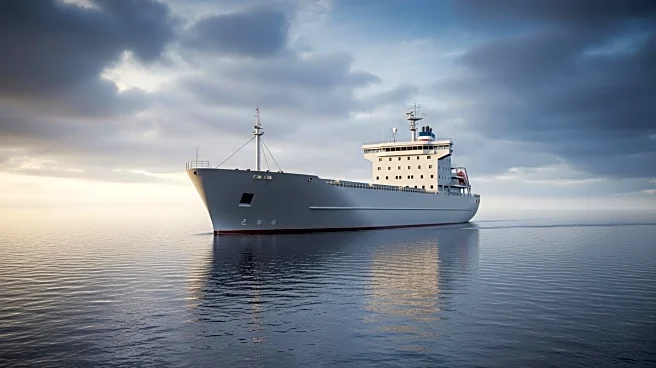What's Happening?
The United Nations Security Council has voted to re-impose the 2015 sanctions regime on Iran, following unsuccessful negotiations between Iran and the E3 countries—France, Germany, and the United Kingdom. The Iranian team, led by Foreign Minister Abbas Araghchi, sought to delay the sanctions by promising to reopen discussions with the United States, but failed to provide substantial proposals. The sanctions, set to be reinstated on September 27, will tighten restrictions on Iran's oil and gas exports, shipping, banking, and access to the international financial system. The Iranian government faces internal debates over the consequences, with President Masoud Pezeshkian expected to address the issue at the upcoming General Assembly in New York.
Why It's Important?
The re-imposition of UN sanctions on Iran is significant as it will enhance the effectiveness of existing restrictions, impacting Iran's economy and political stability. The sanctions will affect Iran's shipping industry, particularly the operations of the Islamic Republic of Iran Shipping Line Group and the National Iranian Tanker Company. The move could exacerbate internal political tensions between hardliners and pragmatists within Iran. Additionally, the sanctions may influence international relations, as countries like China, India, and the UAE, which have continued trading with Iran, may face increased pressure to comply with the UN sanctions.
What's Next?
Iranian President Masoud Pezeshkian is expected to seek a breakthrough during the General Assembly in New York to avert the sanctions. However, Iran must present concrete proposals with the backing of the Iranian Supreme Leader to prevent the snapback. The maritime community anticipates significant impacts on Iranian shipping operations, including potential disruptions to oil held in tankers offshore and ship-to-ship transfers. The situation may also affect global oil markets and international diplomatic relations, particularly between the U.S. and China.
Beyond the Headlines
The sanctions could lead to long-term shifts in Iran's political landscape, potentially strengthening hardliners if economic conditions worsen. The international community's response to the sanctions may also influence global trade dynamics, particularly in the energy sector. The situation underscores the complexities of international diplomacy and the challenges of balancing economic interests with geopolitical strategies.











